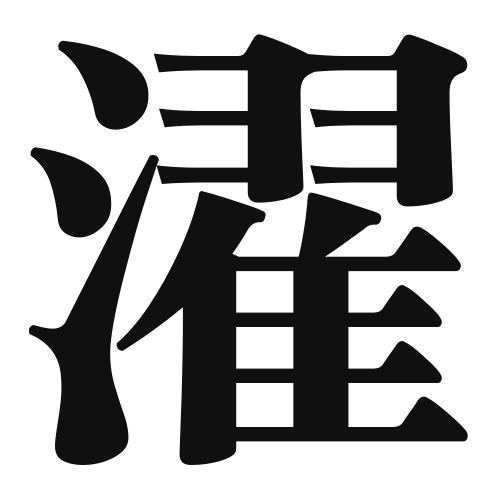1. Overview of Meaning
The kanji “濯” (pronounced “taku” in Japanese) primarily means “to wash” or “to cleanse.” It is often associated with the act of washing clothes or purifying something.
2. Formation and Radical
Formation of the Kanji: The kanji “濯” is a phonetic-ideographic character (形声文字). It combines the water radical (氵) on the left, indicating a relation to water, with the phonetic component “tak” (卓) on the right, which contributes to its pronunciation.
Radical: The radical of “濯” is 氵, which is a variant of 水 (water) and signifies that the character is related to water or liquid.
3. Examples of Usage
Common Words and Phrases: Some frequently used words that include “濯” are:
- 洗濯 (せんたく, sentaku) – laundry, washing
- 濯ぎ (ゆすぎ, yusugi) – rinsing
Example Sentences in Daily Conversation:
- 今日は洗濯をします。 (きょうはせんたくをします。) – I will do the laundry today.
- お皿を濯いでください。 (おさらをゆすいでください。) – Please rinse the dishes.
4. Synonyms and Antonyms
Similar Kanji: A similar kanji is “洗” (せん, sen), which also means “to wash.” However, “洗” is more commonly used for washing hands or cleaning in general, while “濯” is more specific to washing clothes or rinsing.
Antonyms: An antonym for “濯” could be “汚” (お, o), which means “to dirty” or “to stain,” representing the opposite action of cleansing.
5. Cultural and Historical Background
Relation to Japanese Culture: The act of washing is significant in Japanese culture, often associated with purification rituals, such as those performed at shrines. Cleanliness is highly valued in Japanese society.
Proverbs and Idioms: One relevant proverb is “濯ぎの水は清し” (ゆすぎのみずはきよし), which translates to “the rinsing water is clear,” symbolizing the importance of purity and cleanliness in life.
